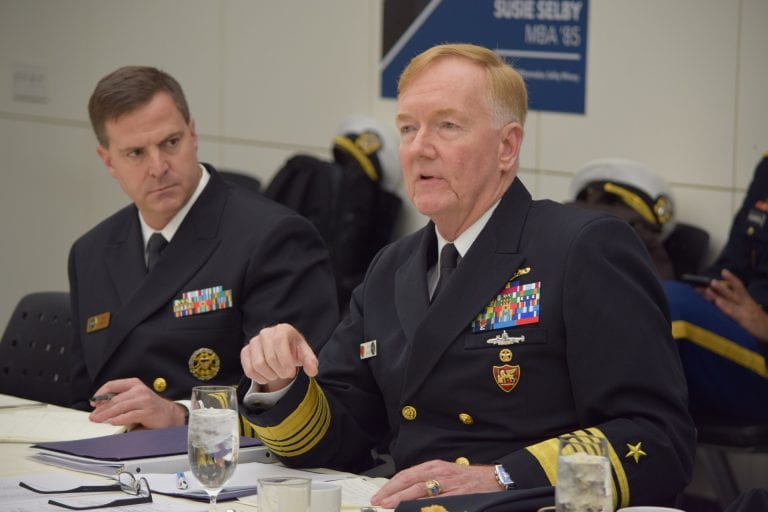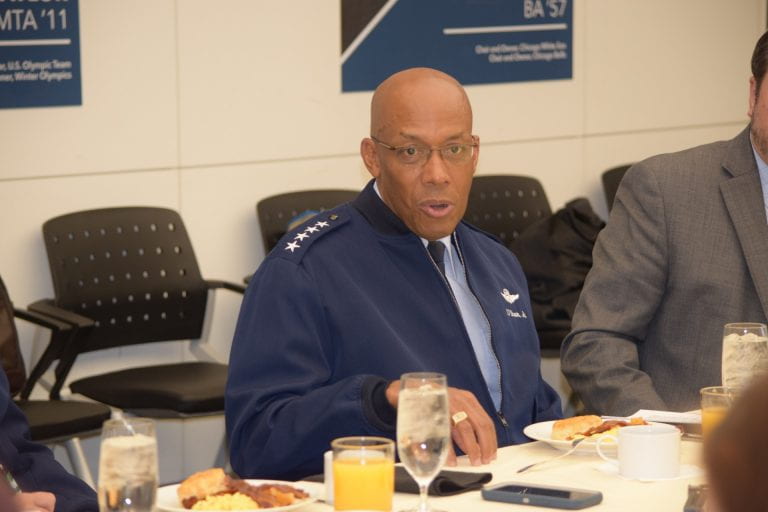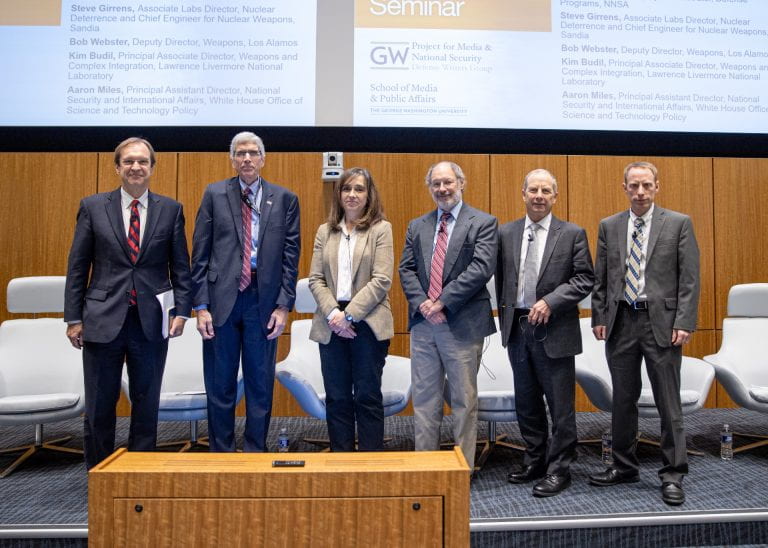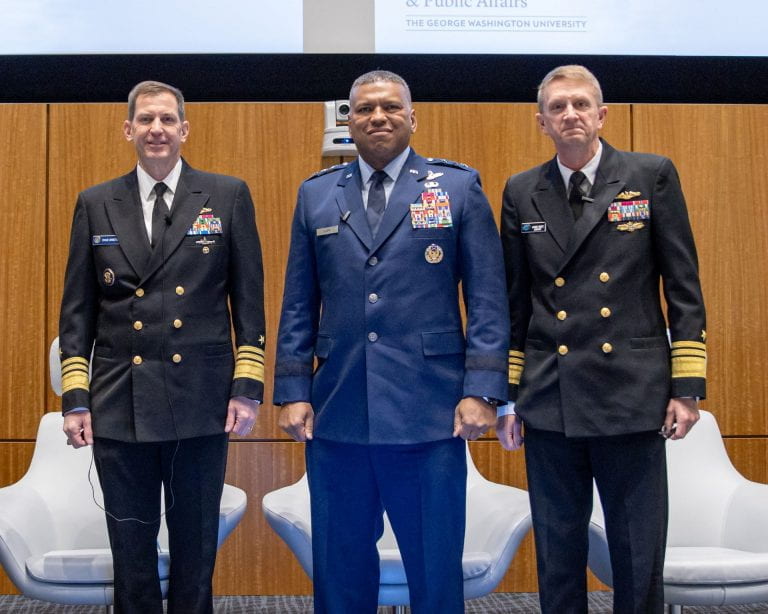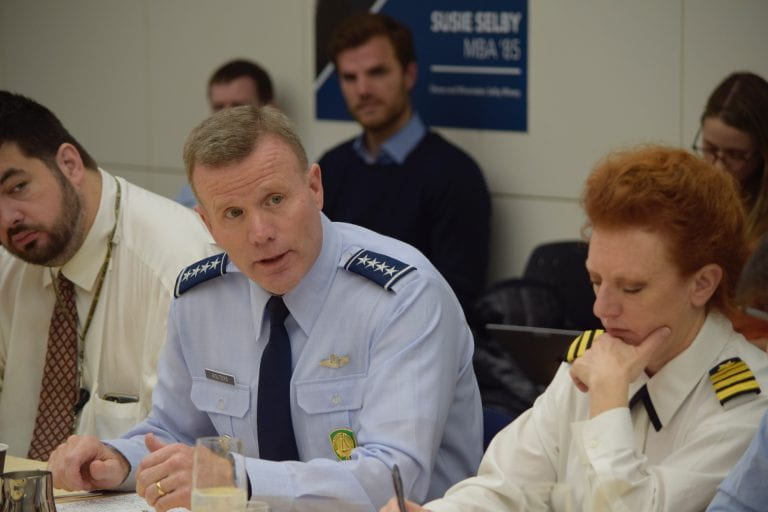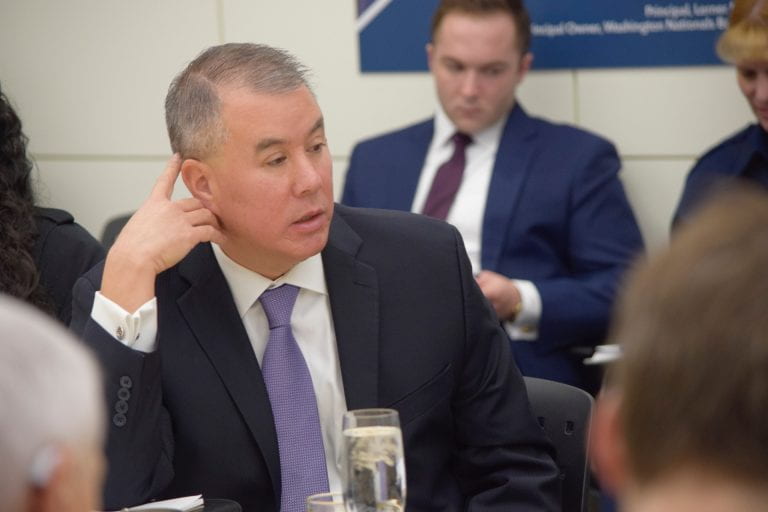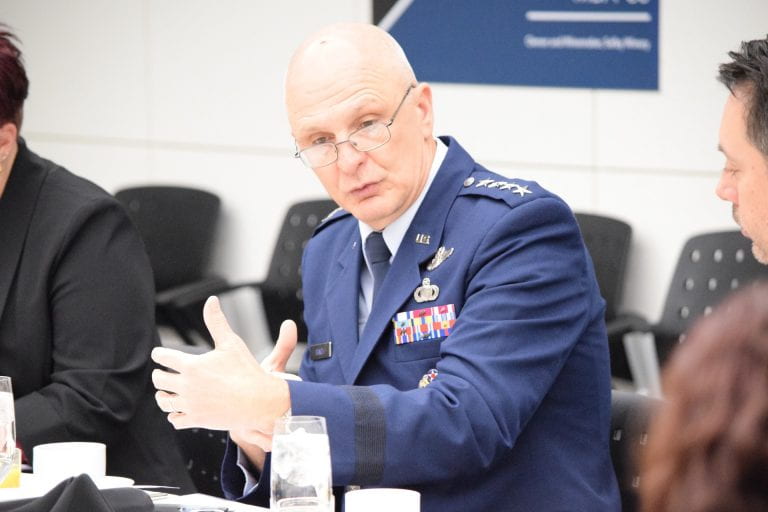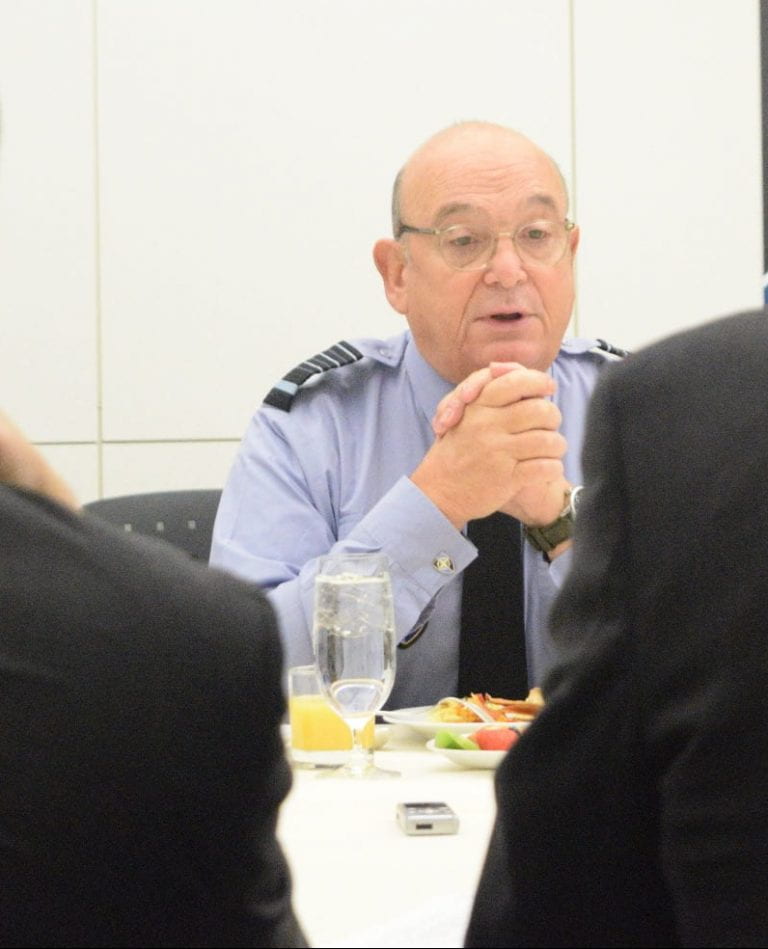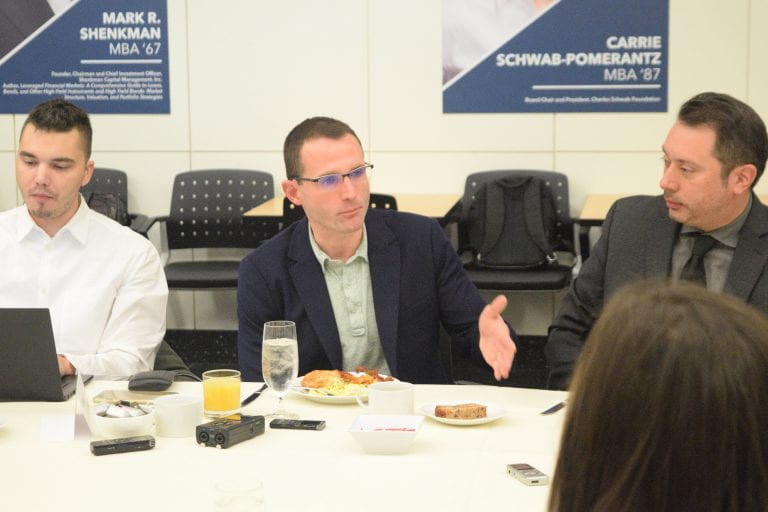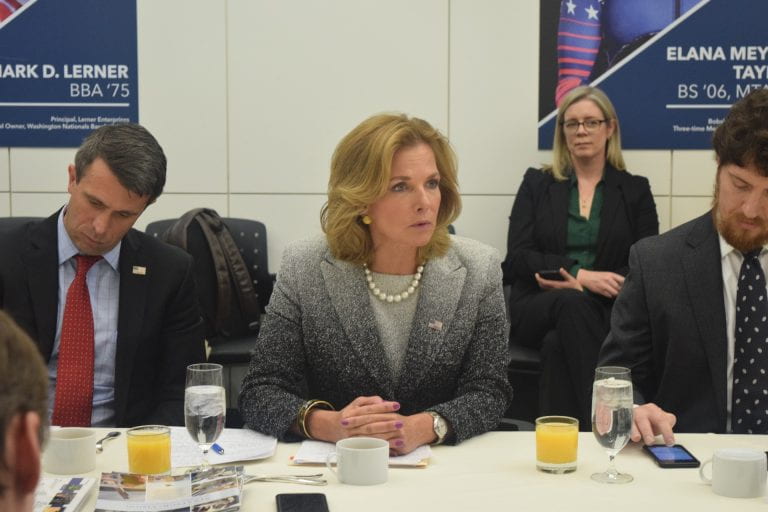Defense Writers Group
18 December 2019
DWG: Admiral, I’d like to get started because you have a plane to catch. First of all, welcome and thank you so much for coming to the Defense Writers Group this morning. It’s a real pleasure and an honor to have a four star admiral here. It doesn’t happen as often as I would like. And you’re a four star admiral who has a really extraordinary set of responsibilities. Read more.
Defense Writers Group
17 December 2019
DWG: You’ve been in the country for a few days already.
General Brown: Actually I’ve been gone from Hawaii since last Sunday. We left last Sunday, came to Washington, DC for some Air Force meetings, then I went out to Nellis Air Force Base, presented a couple of Silver Stars to a couple of men and then also was the guest speaker at the Weapons School graduation, then we came back to DC. Then we have the Air Force SOCOM [Fighter talks] that will start tomorrow. Then we get back to Hawaii about 2 in the morning on Thursday, just in time for the holidays. Read more.
2019 Nuclear Weapons Modernization Seminar
Session 2: Weapons and Labs Panel
Moderator : David Ensor, Director, Project on Media and National Security, School of Media and Public Affairs, The George Washington University
Panelist 1: Dr. Charles P. Verdon, Deputy Administrator, Defense Programs, National Nuclear Security Administration
Panelist 2: Steve Girrens, Associate Labs Director, Nuclear Deterrence and Chief Engineer for Nuclear Weapons, Sandia National Laboratories
Panelist 3: Bob Webster, Deputy Director, Weapons, Los Alamos National Laboratory
Panelist 4: Kim Budil, Principal Associate Director, Weapons and Complex Integration, Lawrence Livermore National Laboratory
Panelist 5: Aaron Miles, Principal Assistant Director, National Security and International Affairs, White House Office of Science and Technology Policy
David Ensor: I’m David Ensor. I’m the Director of the Project for Media and National Security at the George Washington University School of Media and Public Affairs. It’s an honor to be here and working with the MITRE corporation today on this important conversation. I remember being an undergrad at the University of California Berkeley and I did a lot of biking. I used to bike up in the hills, and I bypassed the Livermore facility up there every day and wondered what was going on behind those gates. I’m hoping to learn a little bit more about that along with the rest of you here today. Read more.
2019 Nuclear Weapons Modernization Seminar
Session 1: Readiness and Modernization Panel
Moderator: Adam Hebert, Strategic Communications Manager, MITRE National Security Sector(MNS)
Panelist 1: Lt. Gen. Richard M. Clark, Deputy Chief of Staff for Strategic Deterrence and Nuclear Integration, US Air Force
Panelist 2: Vice Admiral Dave Kriete, Deputy Commander of US Strategic Command
Panelist 3: Vice Admiral Johnny R. Wolfe, Jr., Director, Strategic Systems Programs, US Navy
Adam Hebert: My name is Adam Hebert, I’m the Strategic Communications Manager for MITRE’s National Security Sector. Thank you all for coming this morning.
[Admin announcements]
Mr. Hebert: As everybody should know, our entire forum today is going to be unclassified for obvious reasons. It is on the record. And we do have a number of journalists with us here in the house which is an important part of what we’re doing today. So again, thank you to everybody for coming out on 12/12, and thank you especially to our first group of panelists here. I’ll introduce them individually. Read more.
Defense Writers Group
10 December 2019
DWG: Welcome to the Defense Writers Group. General, thank you very much for coming. This is funded primarily by Carnegie Corporation of New York which does it because they believe it's in the national interest, it’s basically for the country and I believe so too, which is why I took it over a couple of years ago. But the Defense Writers Group has existed for 40 years and has been a place where the military and the media can get together and chat over what’s usually a white tablecloth. This time it’s yellow. And I think it’s led to a lot of good, deeper understanding about the issues that you work on among the public. We do a question and then usually a follow-up which often turns completely off to another subject, and that includes me and I start. Read more.

